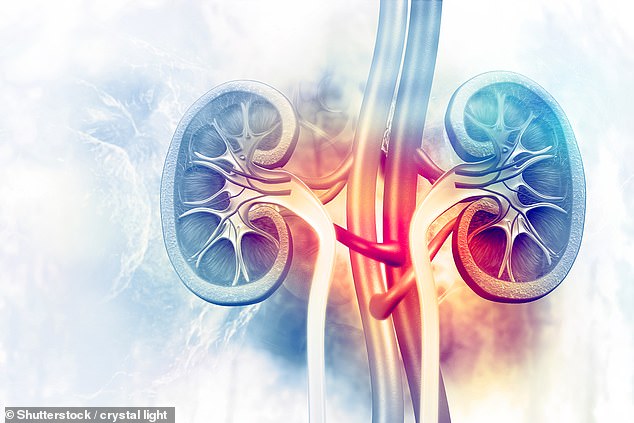A kidney cancer campaigner has urgently warned people not ignore the early signs of the disease that most people either don’t know about or don’t take seriously.
In the UK, around 13,000 people are diagnosed with kidney cancer—38 every day.
The ‘silent’ cancer, which is among the fastest growing, is often symptomless in early stages so is often not diagnosed until later stages, when it has spread to other areas of the body and survival rates plummet.
This warning has come over fears a lack of awareness of seemingly harmless symptoms is putting lives in danger.
Despite being the sixth most common cancer, Malcolm Packer, CEO of Kidney Cancer UK, told the Huffington Post, it is ‘dangerously under-recognised’.
‘Kidney cancer is one of the fastest-growing cancers in the UK,’ he said.
He warned a lack of awareness and funding to tackle the condition which has no routine screening programme has ‘real consequences’.
‘Unlike some other cancers, there are no routine screening programmes and symptoms can be vague or easily dismissed.

An expert has shared the early signs of kidney cancer often dismissed as seemingly innocent
‘As a result, many people aren’t diagnosed until stage two or three—at which point treatment becomes more complex,’ he said.
Mortality rates for kidney cancer have risen by 73 per cent in the UK since the 1970s, with cases soaring among those under 50.
However, the CEO, highlighting the importance of knowing the early signs, said: ‘Catching kidney cancer early can dramatically improve outcomes.’
He shared the key symptoms to look out for, including those that ‘seem mild or unrelated at first glance’.
Blood in the urine—even once— is the most common and potentially most telling early sign.
And the discolouration is not always obvious, according to Mr Packer.
It may appear bright pink or red, but it can also feature a very slight tinge. Either way, it shouldn’t be ignored.
A dull or persistent discomfort in the lower back or either side of your spine below the ribs, known as the flank, can be caused by kidney cancer, he added.
As can a mass or swelling in your side, which could be a tumour in or near the kidney area.
If weight loss is sudden and unexplained, particularly if you are experiencing other symptoms, this is also a red flag.


The former Miami Heat player Dwayne Wade shared that he had 40 percent of his kidney removed in December 2023 after finding a Stage 1 cancerous tumor
This warning comes not long after high profile former American basketball point guard Dwayne Wade revealed he had kidney cancer.
NBA legend Dwayne Wade, 43, revealed subtle stomach pains and a routine check-up led to his kidney cancer diagnosis.
He shared earlier this year that he had 40 per cent of one of his kidneys removed in December 2023, after finding a stage one cancerous tumour.
He said: ‘I talked about just having a slow stream, like sometimes when I would go to the bathroom, my urine would come out little slow.
‘I had some cramps, some pain, a little bit at times in my stomach that I did not understand.
‘But I didn’t think nothing of it. And so, once I finally went in, I was like, “OK, I just want to know everything”’.
Both Wade’s father and grandfather had battled prostate cancer—a fact that had always kept him worried about his health.
He told TODAY: ‘[The doctor] expressed to me that it was very early, but they thought they saw something on my kidneys.
‘I didn’t go in for my kidneys. I went in to check what was going on my stomach and my prostate’.

An expert has shared the early signs of kidney cancer that you cannot afford to ignore
A report by Kidney Cancer UK published earlier this year revealed that almost all cases of the disease are spotted by accident.
That means patients are only being diagnosed when they have a scan for an unrelated condition or in an emergency department.
Just one in five of the patients polled by the charity said their condition was spotted because they were sent for relevant tests by their GP.
Risk factors for the cancer include smoking, obesity, high blood pressure, chronic kidney disease or family history.
Treatment may include surgery, cryotherapy, radiofrequency ablation, targeted medicines, radiotherapy or chemotherapy.
But, individual treatment plans depend on what type of cancer you have, where it is, how big it is, if it has spread, and your general health.
This article was originally published by a www.dailymail.co.uk . Read the Original article here. .


